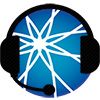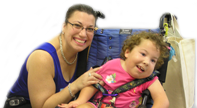Model Services by UCEDDs
| Download |
|
|
| Archived Recording |
In order to view the webinar presentation, please click on the webinar icon below.
|
1:00 p.m. - 2:00 p.m. ET
Location: Webinar
About this Webinar
This webinar will address the Model Services UCEDD core function. This is the fifth installment of a multi-part series titled "Coffee and TA," addressing the UCEDD core functions as categorized in NIRS. This webinar features two UCEDDs doing innovative work around Model Services, classified in NIRS as Direct/Model Services and Direct Clinical Services.
For our previous installments:
- Interdisciplinary Pre-Service Preparation for UCEDDs without a LEND or Training Grant; archived here.
- Continuing Education for UCEDDs; archived here.
- Community Training for UCEDDs; archived here.
- Technical Assistance Provided by UCEDDs; archived here.
Presenters
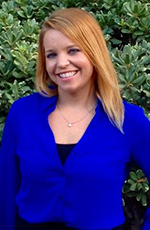 Danielle Haener, Psy.D.,is a licensed psychologist at UC Davis MIND Institute with specialized training in psychological assessment. Her clinical work focuses on assessing and diagnosing neurodevelopmental disorders, such as developmental delays, intellectual disabilities, autism spectrum disorder (ASD), and attention deficit/hyperactivity disorder (ADHD), and other mental health conditions in order to guide families and children towards appropriate and evidence based interventions. Dr. Haener is the clinical director of the social skills program, serving children and adolescents with autism ages 8-17. Dr. Haener is also a member of the research clinical team and provides support to several MIND Institute research studies seeking to build the existing knowledge of early autism risk factors.
Danielle Haener, Psy.D.,is a licensed psychologist at UC Davis MIND Institute with specialized training in psychological assessment. Her clinical work focuses on assessing and diagnosing neurodevelopmental disorders, such as developmental delays, intellectual disabilities, autism spectrum disorder (ASD), and attention deficit/hyperactivity disorder (ADHD), and other mental health conditions in order to guide families and children towards appropriate and evidence based interventions. Dr. Haener is the clinical director of the social skills program, serving children and adolescents with autism ages 8-17. Dr. Haener is also a member of the research clinical team and provides support to several MIND Institute research studies seeking to build the existing knowledge of early autism risk factors.
 Kathleen Angkustsiri, M.D. is a developmental-behavioral pediatrician with interests in neurodevelopmental disorders including autism spectrum disorders, chromosome 22q11.2 deletion syndrome (22q11.2DS), and fragile X syndrome. Dr. Angkustsiri is involved in research on dysmorphology for children with autism spectrum disorders, behavioral characteristics of children with 22q11.2DS, clinical trials for autism, and fragile X syndrome.
Kathleen Angkustsiri, M.D. is a developmental-behavioral pediatrician with interests in neurodevelopmental disorders including autism spectrum disorders, chromosome 22q11.2 deletion syndrome (22q11.2DS), and fragile X syndrome. Dr. Angkustsiri is involved in research on dysmorphology for children with autism spectrum disorders, behavioral characteristics of children with 22q11.2DS, clinical trials for autism, and fragile X syndrome.
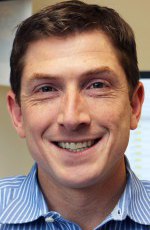 Brian Freedman, Ph.D. leads training initiatives and systems change projects, and designs innovative service models. He and his team create college and career exploration programs for students with disabilities, including autism and intellectual disabilities. Brian is the Co-Director of the Delaware Leadership Education in Neurodevelopmental Disabilities (LEND) program, which provides training to students and professionals. He also collaborates with Delaware state agencies, advocacy organizations and hospital systems to influence early childhood systems and promote inclusive community living. Brian is a faculty member in UD’s School of Education and teaches in the Disability Studies minor. Before arriving at CDS, Brian was clinical director at the Kennedy Krieger Institute Center for Autism and Related Disorders. He previously conducted comprehensive assessments as well as individual, family and group therapies. He received his Ph.D. in Clinical Psychology from Nova Southeastern University.
Brian Freedman, Ph.D. leads training initiatives and systems change projects, and designs innovative service models. He and his team create college and career exploration programs for students with disabilities, including autism and intellectual disabilities. Brian is the Co-Director of the Delaware Leadership Education in Neurodevelopmental Disabilities (LEND) program, which provides training to students and professionals. He also collaborates with Delaware state agencies, advocacy organizations and hospital systems to influence early childhood systems and promote inclusive community living. Brian is a faculty member in UD’s School of Education and teaches in the Disability Studies minor. Before arriving at CDS, Brian was clinical director at the Kennedy Krieger Institute Center for Autism and Related Disorders. He previously conducted comprehensive assessments as well as individual, family and group therapies. He received his Ph.D. in Clinical Psychology from Nova Southeastern University.
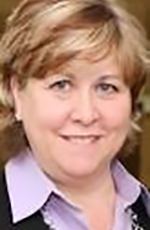 Beth Mineo, Ed.D. became CDS’s third director in 2008. She’s also an associate professor in UD’s School of Education, where she is a faculty member in the master’s program in exceptional children and youth and the Ed.D. in educational leadership; she has a secondary appointment in the Department of Communication Sciences and Disorders in UD’s College of Health Sciences; and she’s the co-director at UD of the Leadership Education in Neurodevelopmental Disabilities (LEND) program. Beth teaches graduate and undergraduate courses about assistive technology, augmentative and alternative communication, clinical practices in speech-language pathology and a senior seminar on disability studies, the capstone of UD’s Disability Studies minor, which CDS administers. Beth’s research interests include the relationship between various language representations and language understanding and use, the influence of emerging technologies on youngsters with disabilities, communication interventions for people with significant disabilities and the impact of accessible instructional materials on academic outcomes and student self-perception. She has published many articles and book chapters in these areas, and has served as the editor-in-chief of the journal Assistive Technology. Beth received her Ph.D. in Communication Sciences and Disorders from the University of Pittsburgh.
Beth Mineo, Ed.D. became CDS’s third director in 2008. She’s also an associate professor in UD’s School of Education, where she is a faculty member in the master’s program in exceptional children and youth and the Ed.D. in educational leadership; she has a secondary appointment in the Department of Communication Sciences and Disorders in UD’s College of Health Sciences; and she’s the co-director at UD of the Leadership Education in Neurodevelopmental Disabilities (LEND) program. Beth teaches graduate and undergraduate courses about assistive technology, augmentative and alternative communication, clinical practices in speech-language pathology and a senior seminar on disability studies, the capstone of UD’s Disability Studies minor, which CDS administers. Beth’s research interests include the relationship between various language representations and language understanding and use, the influence of emerging technologies on youngsters with disabilities, communication interventions for people with significant disabilities and the impact of accessible instructional materials on academic outcomes and student self-perception. She has published many articles and book chapters in these areas, and has served as the editor-in-chief of the journal Assistive Technology. Beth received her Ph.D. in Communication Sciences and Disorders from the University of Pittsburgh.
